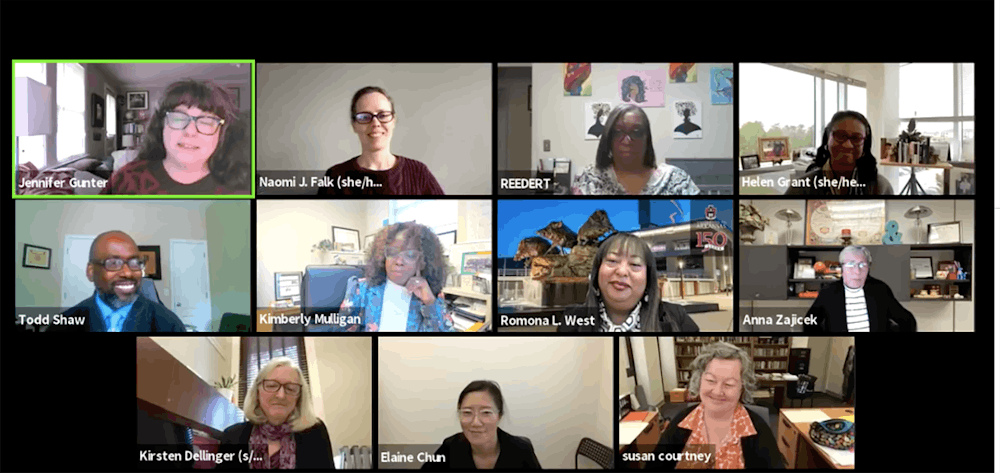USC's College of Arts and Sciences hosted the Equity and Inclusion Summit, focusing on providing information and starting conversations between students, faculty and staff about improving the experiences of people of all backgrounds while on campus.
The virtual event spanned three days, with participants getting a chance to hear from a range of experts from Nov. 3 to Nov. 5.
"The summit is interdisciplinary, multi-generational, also an inner sector conversation about equity — about race equity — about issues that affect people who have been minoritized by our society. And what I aim to do with it is to bring together academics and activists to have a conversation about what works," Jennifer Gunter, USC's director on the collaborative on race and the organizer of this year's summit, said.
Part one of the conference, which took place over the first two days, centered around how to meet students' needs with an emphasis on amplifying minority voices. Listeners heard from Krystal Moore Clemons, national director of the Children's Defense Fund; Doyle Stevick, executive director of the Anne Frank Center; and Associate Professors Daniella Cook and John Hale.
In their presentation, Cook and Hale educated participants about the "Opportunity Gap" that leaves many students of color behind their white peers after not having access to resources like gifted classes that allow them to reach higher education more easily.
"It's not about whether or not all kids should go to college; the question should be, are we equipping all kids to have the choice to go," Cook said.
While the sessions varied in topic, they all had one thing in common – an emphasis on meaningful conversation. Gunter made discussion a priority at the beginning of the summit planning process. She said that she often will reach out to individuals doing innovative research and invite them to present and join the conversation.
"I just email them and say, 'Can we have a conversation? I'd really like to talk about how we might collaborate,'" Gunter said.
On the second day, this conversation was broadened to the larger community as associate deans from the University of Mississippi, the University of Arkansas and Auburn University got the chance to share current projects they were working on and collaborate on new ideas.
Many deans shared their focus on equity in the future.
"If we are really serious about inclusion, equity and diversity in this college, it should be a part of everything that we do. How are we looking at how you're being inclusive in your research? How are we looking at how you're being inclusive in your teaching? How are we looking at how you are doing services that are inclusive? It can't just be wrapped up in this one little portion of you doing service and think that is gonna be enough to get people who it doesn't directly impact to want to be involved," Kimberly Mulligan from Auburn University said.
On the summit's final day, the topic narrowed to more USC-specific programming with a forum for College of Arts and Sciences faculty, staff and students. The forum included several caucus presentations, including the GDIA student caucus, which works as the student voice for equity and inclusion within the College of Arts and Sciences.
Students expressed their hope for more widespread education about DEI resources and support.
"I would love to see some more inclusion of these resources in syllabi at the beginning of the school year,"third-year mechanical engineering student Garey Weaver said. Weaver said they think this would make students "feel much safer with that professor" and that it "adds a level of transparency and security for students."
The session ended with hopes to continue to grow as secure and welcoming for all students on campus. Gunter said she plans to achieve this goal by continuing to foster essential conversations. In addition, she said hopes to see the Equity and Inclusion Summit continue to grow and expand in the future, possibly including other colleges at USC and other universities.
"I'm very interdisciplinary myself and welcome collaborations among all kinds of people, and I would suggest that other colleges could absolutely do something like this," Gunter said.
Gunter has already started to plan next year's conference, which she said she hopes will be even larger and include in-person sessions.

